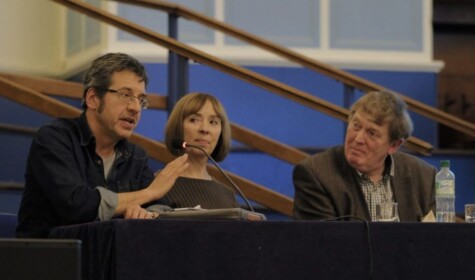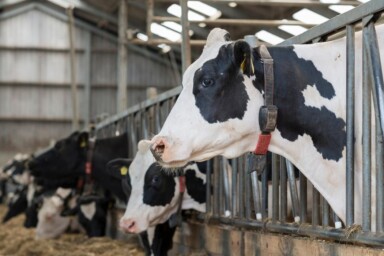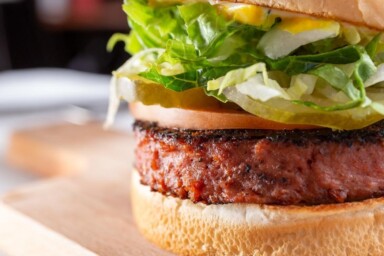Keynote speaker, George Monbiot set out his case that we need to get rid of all farm animals in order to allow the natural world to regenerate and prevent irreversible climate change. He also gave his enthusiastic backing to hi-tech solutions and argued that lab-grown meat and protein produced from hydrogen and air are the future and will be able to feed us all in a few years without farmland being used, except for the growing of organic vegetables from stockless systems.
Sustainable Food Trust (SFT) policy director, Richard Young, said the SFT agreed with almost all of George’s genuine concerns about the impact of intensive agriculture and the serious threat from global warming. But strongly disagreed with him about grazing animals, which we see as central to the development of sustainable food systems, especially in countries like the UK where grass grows exceptionally well and over half our farmland is unsuitable for cropping. In a series of examples, Richard showed how George has built his position on exaggerated claims, occasional misquoting of a source and global statistics not relevant to the UK.
In one example Richard showed how in the Channel 4 programme ‘Apocalypse Cow: How Meat Killed the Planet’, George claims that the carbon footprint of eating 4 kg of beef is greater than that of flying from London to New York and back. But data from a paper George has previously used himself shows that he exaggerates by 400%, based on the most extreme example, and 2200% for the best examples from the UK.
Another claim that, although roughly twice as much land is used worldwide for grazing as for crop production, it provides just 1.2% of the protein we eat, was also challenged by Young whose own calculations found that UK grassland actually produces 25.6% – 31.5% of protein per person per day, not 1.2%.
Journalist and food writer, Joanna Blythman said that she had looked into the fashionable plant-based diet and certainly would not be adopting it because it didn’t meet her criteria for health or living within planetary limits. She said, “For me, any diet that automatically leaves you nutritionally deficient in essential micronutrients, a diet, which by definition, isn’t nutritionally complete enough to sustain healthy human life is a non-starter.”
Joanna also analysed the global EAT Lancet diet which recommends only tiny amounts of food derived from animals and pointed out how inappropriate this would be for vast swathes of the world where the populations suffer from under-nutrition. She said, “When ideologues living in affluent countries, countries where obesity and Type-2 diabetes are rampant, pressurise poor countries to eschew animal foods and go plant-based, they are displaying crass insensitivity, and a colonial White Saviour mindset.”
Peter Segger, organic vegetable farmer, also raised the issue of nutrition. He said that the Government is doing little to address the shocking decline in nutritional value of fresh produce and that this jeopardises future health and sustainability.
Patrick Holden, CEO of the SFT, ended the session by asking for people to work together and imploring George Monbiot to reconsider his stance against farming and grazing animals in particular. Speaking directly to him he said, “We need your support. We need to get back to producing food in harmony with nature without diminishing our natural capital.”
Photograph: Hugh Warwick





